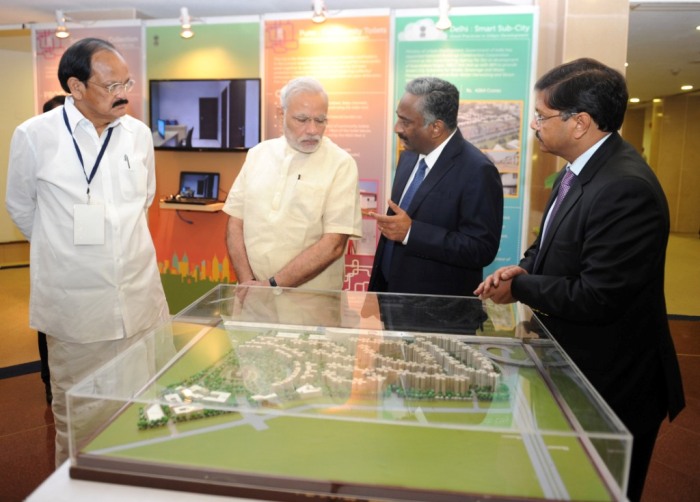Indian urban areas are on a phase of a serious make-over, with 98 cities short-listed to be developed as smart cities. Global information technology vendors are keenly eyeing the project, which would probably enhance the urban living standards to that of successful smart cities in the world such as Beijing, Tianjin, Houston, Dallas and Paris.
Creating 100 smart cities across the nation over the next five-years is a flagship project announced by the National Democratic Alliance government lead by Prime Minister Narendra Modi. The government also aims to upgrade these smart cities as safe cities.
If accomplished, there is no doubt that India will become a hot spot for global IT service providers. Companies have already showed their interests India’s smart cities. In May, ZTEsoft, the software arm of Chinese telecom equipment maker ZTE, has offered to invest Rs 500 crore in the Indian government’s smart cities project.
ZTEsoft had developed a number of smart cities in China and neighboring countries. It will invest Rs 40 crore to set up a centre of excellence for projects related to smart cities and the Internet of Things (IoT).
The U.S.-based multinational companies like HP, Cisco and Otis have showed their interest in investing four cities in West Bengal – Salt Lake, New Town, Haldia and Durgapur. From the Middle East, the UAE has also showed interest in participating India’s smart city project.
Altogether, the atmosphere looks favourable for the Indian economy. Industry experts believe the project to add to the growth story of the Indian economy.
Gaia Smart Cities Founder and CEO Sumit D. Chowdhury says the important components for creating Smart Cities in India would require co-operation between various city departments to create common infrastructure so as to catapult from basic facilities to adoption of new technology, enabling the citizens to participate in the growth story.
The guiding principle on which a Smart City is based is to enhance the quality of life and safety of citizens and ensure that all necessary resources are effectively and efficiently utilized.
“We at Verint Systems have been a part of the Smart City initiative in India from its inception, helping cities achieve new levels of situational awareness for increased safety, security and efficiency and believe that this announcement highlights the Central Government’s renewed focus and commitment to the cause,” Verint Systems India Country Manager Anand Navani said.
According to Reji Kumar Pillai, president & CEO of India Smart Grid Form, the biggest challenge which the Smart Cities project will face would be the tendering process, wherein the lowest bidder will walk away with the mandate, which can result in inducting the equipment in the Smart City eco-system which may become obsolescence much earlier.
Moreover, the evolution of the smart cities will call for higher need of law and order. T he Home Minister Rajnath Singh has said the home ministry will be proposing to the Urban Development Ministry that the smart cities should be developed as ‘Safe Cities’. The government plans to equip the cities with the latest security equipments like CCTVs, command control centers, patrol cars, aerial surveillance, more women cops, crime and terror free.
Recent developments in the U.S. also indicate that they also prefer the smart city movement. On September 14, the Obama administration announced a new “Smart Cities” initiative that will invest over $ 160 million in federal research and leverage more than 25 new technology collaborations to help local communities tackle key challenges.
Smart city movement has helped Dubai to connect every traffic signal to the emirate’s traffic control center using 3G technology. This has allowed the country to eliminate the lag in timings of signal, ability to remotely control signals and efficient management of traffic. Moreover, the smart technology is considered as cost efficient compared with the previous situation.
China also enjoys the facilities its smart cities provide. With greater connectivity available in cities, Chinese are now able to check the bus timings, fix an appointment at city hospitals and even find parking spaces through apps in their smartphones.
Arya MM
[email protected]

